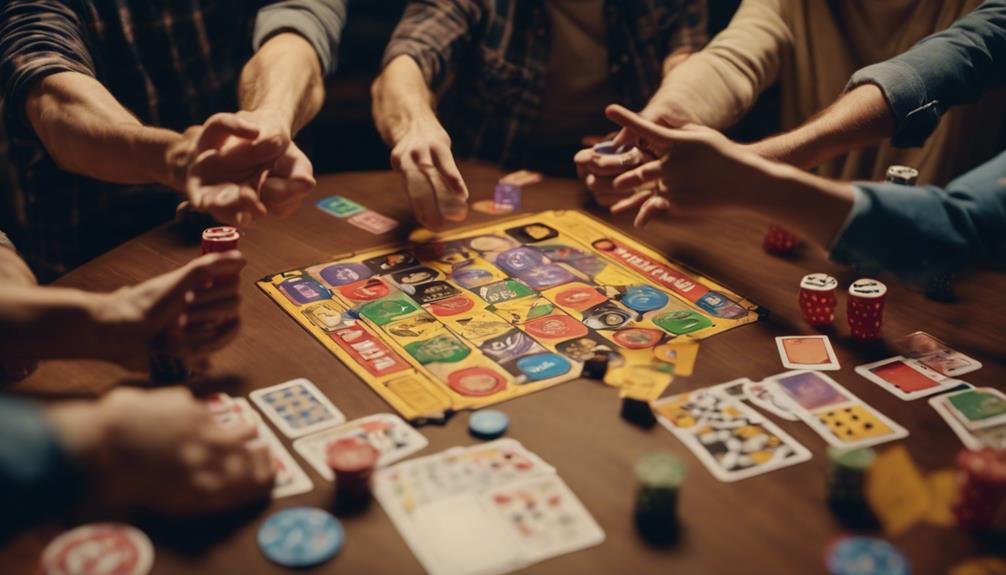Problem-solving games have become a popular form of entertainment for people of all ages. These games challenge players to think critically, strategize, and use logic to overcome obstacles and achieve goals. While they are often enjoyed for their entertainment value, problem-solving games also offer a range of cognitive, emotional, and social benefits. This article explores the many advantages of playing problem-solving games and how they can positively impact various aspects of your life.
Key Takeaways
- Enhances Cognitive Skills: Problem-solving games improve critical thinking, decision-making, memory, and cognitive flexibility, equipping players to tackle complex tasks in real life.
- Reduces Stress and Builds Resilience: Engaging in these games can reduce stress, promote relaxation, and build perseverance by encouraging players to overcome challenges and learn from failure.
- Fosters Social Interaction and Teamwork: Multiplayer problem-solving games promote collaboration, communication, and healthy competition, helping to strengthen social bonds and build teamwork skills.
- Applies to Real-Life Situations: The skills developed through problem-solving games, such as decision-making and strategic thinking, can be effectively used for everyday challenges, academic success, an
Enhancing Critical Thinking Skills
Problem-solving games are designed to challenge players to think critically and analytically. These games often present complex scenarios that require players to evaluate different options, weigh potential outcomes, and make decisions based on logical reasoning.
Developing Analytical Skills: These games allow players to practice breaking down problems into smaller, more manageable parts, analyzing each component, and determining the best course of action. This process helps to develop strong analytical skills that can be applied to real-world situations.
Improving Decision-Making: Problem-solving games also improve decision-making abilities by requiring players to make quick yet thoughtful choices. Whether deciding the best move in a strategy game or figuring out how to solve a puzzle, these decisions enhance the player’s ability to think on their feet and make sound judgments.
Boosting Memory and Cognitive Flexibility
Many problem-solving games require players to remember patterns, sequences, or strategies to progress. This repeated use of memory helps to strengthen short-term and long-term recall.
Memory Enhancement: Games that involve memorization, such as puzzles or strategy games, encourage players to recall information quickly and accurately. Regularly exercising memory skills can lead to improved cognitive function, particularly in areas related to learning and retention.
Cognitive Flexibility: Problem-solving games often require players to switch between different tasks or adapt to new challenges as they progress. This ability to shift thinking and adapt to changing circumstances is known as cognitive flexibility. By practicing this skill in games, players become better equipped to handle multiple tasks and adapt to new situations in their everyday lives.
Enhancing Spatial Reasoning
Spatial reasoning is visualizing and manipulating objects in a given space. Many problem-solving games, such as puzzles, mazes, and construction games, require players to think spatially to achieve their goals.
Improving Spatial Awareness: These games help players better understand spatial relationships and strengthen their ability to visualize and manipulate objects in their minds. This skill is particularly useful in fields that require strong spatial reasoning, such as architecture, engineering, and art.
Applying Spatial Skills in Real Life: Enhanced spatial reasoning skills can also be beneficial in everyday tasks, such as navigating unfamiliar environments, assembling furniture, or even packing a suitcase efficiently.
Emotional Benefits of Problem-Solving Games
Reducing Stress and Anxiety
Engaging in problem-solving games can be a relaxing and stress-relieving activity. These games provide control and accomplishment as players work through challenges and find solutions.
Sense of Control: Problem-solving games allow players to take control of a situation and work through it at their own pace. This can be particularly empowering for individuals who may feel overwhelmed by real-life challenges. The structured environment of the game provides a safe space to practice problem-solving skills without the pressure of real-world consequences.
Stress Relief: The focus required to solve problems in these games can also help distract players from their worries and reduce anxiety. The sense of achievement from overcoming obstacles in the game can boost self-esteem and create a more positive mood.
Building Resilience and Perseverance
Problem-solving games often present challenges that require persistence and determination to overcome. Players may need to try multiple strategies or attempt a solution several times before succeeding.
Encouraging Persistence: Players learn the value of persistence and perseverance by engaging in these games. They understand that failure is a part of the learning process and that success often comes after multiple attempts. This mindset can be incredibly beneficial in real-life situations where resilience is key to overcoming difficulties.
Building Confidence: Successfully solving problems in games can build confidence and a sense of accomplishment. This confidence can carry over into other areas of life, encouraging individuals to take on new challenges positively.
Social Benefits of Problem-Solving Games
Fostering Collaboration and Teamwork
Many problem-solving games are designed to be played with others, either in person or online. These games often require players to work together to achieve a common goal, fostering collaboration and teamwork.
Developing Communication Skills: Effective communication is essential for success in multiplayer problem-solving games. Players must share information, discuss strategies, and coordinate their actions to solve puzzles or complete tasks. This interaction helps develop strong communication skills and promotes teamwork.
Building Social Connections: Playing problem-solving games with others can also strengthen social bonds and create a sense of community. Whether it’s playing with friends, family members, or online peers, these games provide opportunities for social interaction and the development of meaningful relationships.
Promoting Healthy Competition
While many problem-solving games emphasize collaboration, others introduce elements of competition. Healthy competition can motivate players to improve their skills and strive for excellence.
Encouraging Personal Growth: Competing in problem-solving games can push players to hone their abilities and develop new strategies. This drive for improvement can lead to personal growth and greater achievement.
Learning to Handle Competition: Additionally, problem-solving games that involve competition teach players how to handle winning and losing gracefully. They learn to respect their opponents, celebrate their successes, and accept setbacks as opportunities for growth.
Practical Applications of Problem-Solving Skills
Applying Game Skills to Real-Life Situations
The problem-solving skills developed through gaming are not limited to the virtual world. These skills can be applied to various real-life situations, from work and school to personal challenges.
Workplace Efficiency: Problem-solving skills are invaluable in the workplace for tackling complex tasks, managing projects, and making decisions. Employees who regularly engage in problem-solving games may find themselves better equipped to handle the demands of their jobs and come up with innovative solutions.
Academic Success: Students who play problem-solving games may also benefit academically. The critical thinking, memory, and analytical skills honed in these games can improve performance in subjects like math, science, and reading.
Enhancing Everyday Decision-Making
Problem-solving games also help players develop strong decision-making skills that can be applied to everyday life. Whether deciding how to budget finances, planning a trip, or resolving a conflict, the ability to think critically and evaluate options is crucial.
Improving Everyday Choices: Players become more confident in making informed real-life choices by practicing decision-making in a game setting. They learn to consider the potential consequences of their actions and choose the best course of action based on logic and reasoning.
Building a Problem-Solving Mindset: Regular engagement in problem-solving games encourages the development of a problem-solving mindset. This mindset involves approaching challenges with curiosity, creativity, and a willingness to explore different solutions. It can lead to a more proactive and positive approach to life’s obstacles.
Conclusion
Playing problem-solving games offers many benefits, from enhancing cognitive abilities and reducing stress to fostering social connections and promoting personal growth. These games challenge players to think critically, develop strategies, and persevere through difficulties, all while providing an enjoyable and engaging experience. Whether played alone or with others, problem-solving games can positively impact various aspects of life, helping individuals develop skills that are valuable both in the virtual world and in real-life situations. As such, incorporating problem-solving games into your routine can be a fun and effective way to boost your mental and emotional well-being, improve your social interactions, and equip yourself with the tools needed to navigate life’s challenges.
FAQs
How do problem-solving games improve cognitive skills?
Problem-solving games challenge your brain, enhancing critical thinking, memory, and focus. By requiring players to analyze situations, identify patterns, and make strategic decisions, these games help strengthen cognitive abilities that are valuable in everyday life.
Can playing problem-solving games reduce stress?
Yes, problem-solving games can reduce stress by providing a mental escape from daily pressures. Engaging in these games can promote relaxation and offer a sense of accomplishment when challenges are overcome, which helps improve overall mood and reduces anxiety.
How do problem-solving games foster creativity?
Problem-solving games encourage creative thinking by presenting unique challenges that require out-of-the-box solutions. These games often promote experimentation and exploration, helping players develop innovative approaches to problem-solving that can be applied in various aspects of life.
What social benefits come from playing problem-solving games?
Playing problem-solving games enhances teamwork and communication skills, especially in group settings. These games provide opportunities to build social connections and foster a sense of camaraderie among players, making them great for entertainment and social bonding.
By playing problem-solving games, you enjoy the process and gain valuable cognitive, emotional, and social benefits that contribute to personal growth and well-being.




